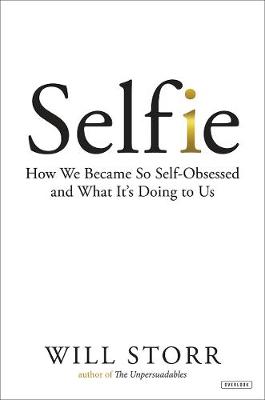Reviewed by Joséphine on
In terms of history, though, I found Selfie to be illuminating. This is, after all, where journalists shine: when they recount events of the past. Through this book I learnt a great deal about how "self-esteem" became a key word of late 20th century pedagogy, and why even today, we believe so much in the importance of self-esteem, despite flimsy academic backing.
It was also fun to revisit basic concepts on acculturation and the construction of the self. Symbolic interactionism is a school of thought I related to a great deal during my undergraduate study of sociology, so reading this book felt like a sort of homecoming.
What disappointed me about Selfie was that it didn't exactly meet my original expectations. Given the title, I expected a greater focus on what drives excessive self-portraiture, the digital self and technology as a whole. Only one chapter towards the end dealt with this, and even then it lacked reference to theories that might explain the larger cultural impact of selfies and what drives them.
To be fair, the subtitle did allude to a breadth of history to answer the question of how we became so self-obsessed, so the time before selfies did have a legitimate place in the book. Although, what it's doing to us wasn't as extensively addressed. There were fleeting anecdotes demonstrating the impact of various developments on human behavioural changes but to accept these as answers, readers are required to extrapolate. Generalising from one or two human interest stories is poor (social) science.
More than anything, Selfie is a work of pop sociology — fascinating and informative but not one that can stand on its own if you're interested in learning more about the self and/or selfies.
Reading updates
- Started reading
- 30 September, 2017: Finished reading
- 30 September, 2017: Reviewed
- Started reading
- 30 September, 2017: Finished reading
- 30 September, 2017: Reviewed
